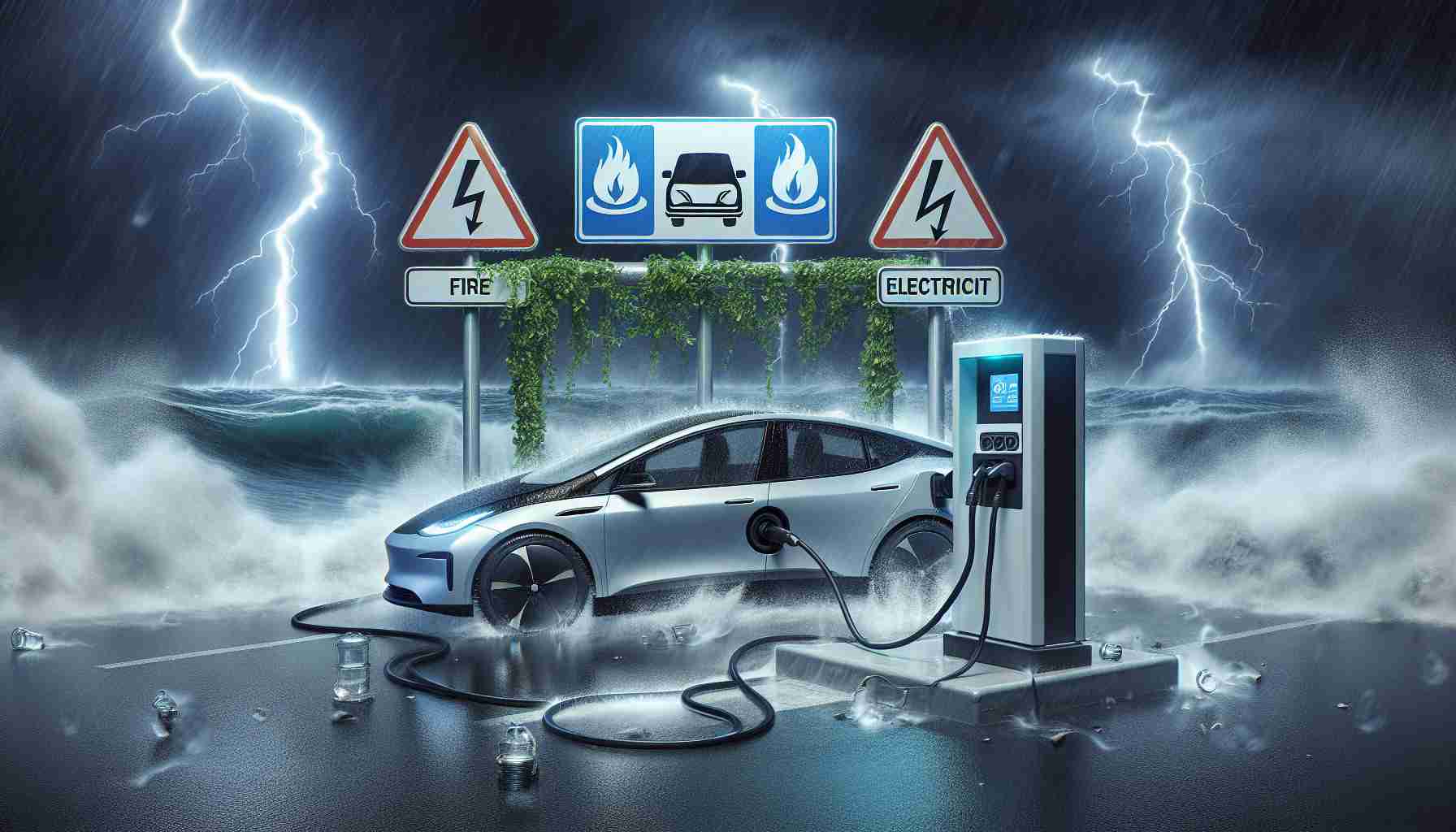Hurricane season in the Southeast saw a sharp increase in the aftermath of storms Helene and Milton, leaving behind not just property destruction but also hidden dangers related to electric vehicles and batteries. The severe flooding caused by these hurricanes resulted in significant fires among electric vehicles (EVs) and lithium-ion powered gadgets.
In the months of September and October 2024, the floodwaters displaced buildings and demolished infrastructure, while also turning batteries into unexpected hazards. Around 11 electric cars and nearly 50 lithium-ion products ignited after being exposed to the corrosive and conductive nature of salt water. These fires, which sometimes affected nearby homes, posed significant challenges to firefighting efforts.
The issue of thermal runaway is a major concern. Thermal runaway is a rapid series of heat-producing reactions within a battery, often leading to fires that are difficult to control. By absorbing salt water, the batteries become extremely volatile. This risk is compounded when the flood is saline, making it so conductive that even minor leaks into battery packs could trigger catastrophic failures.
With lithium-ion batteries being a staple in modern technology—from electric cars to cordless tools—the latent threat they pose during flooding is concerning. Experts stress the importance of keeping EVs and battery-operated devices away from floodwaters. When unavoidable, these items should be treated with utmost caution. Post-flooding, they should be inspected by professionals, as the dangers can persist even after the floodwaters recede. Understanding these risks is crucial for anyone owning lithium-ion-based technology, especially in flood-prone regions.
Are Electric Vehicles a Hidden Threat in Flood Zones?
As the world becomes increasingly reliant on electric vehicles (EVs) and lithium-ion batteries, the often-overlooked risk posed by these technologies during flooding events has come to light. The recent hurricane season has brought fresh insights into the volatile nature of these batteries when submerged, highlighting a critical challenge in our advancing technological landscape.
Interesting Facts and Unseen Dangers
One of the most startling revelations is the enhanced risk of fire due to the chemical reactions triggered in the batteries when they come into contact with salt water. The conductive properties of salt water can initiate a series of heat-generating reactions, known as thermal runaway, capable of causing uncontrollable fires. This phenomenon has resulted in several incidents during the hurricane season, where EVs and gadgets ignited unexpectedly after being exposed to floodwaters.
While the adaptability of lithium-ion technology in diverse applications—from smartphones to power tools—is commendable, its compatibility with nature’s wrath poses significant concerns. The ability of salt water to seep into battery compartments and cause destructive chemical reactions is an intricate problem yet to be fully addressed by manufacturers and safety regulators.
Advantages and Disadvantages
The advantages of lithium-ion batteries include their high energy density, long lifespan, and ability to support rapid charging, all of which contribute to their popularity in modern electronics and electric vehicles. However, these benefits are overshadowed by their inherent instability when compromised by environmental factors, particularly floodwaters.
The disadvantages are starkly realized during natural disasters. Beyond the immediate danger of fire, the chemical composition of these batteries can pollute surrounding environments if the contents leak, posing a lingering risk to both human health and wildlife.
Development of Humanity and Technologies: Boon or Bane?
A pressing question emerges: As we push for greener technologies, how do we mitigate these risks?
Innovation in battery technology is crucial. Could advancements lead to less reactive and more stable alternatives? Research into solid-state batteries is promising, offering a potential pathway to safer energy storage solutions. Solid-state batteries replace the liquid electrolyte with a solid, potentially reducing the risk of leakage and thermal runaway.
Ask and Answer: Why This Matters
Why are these issues relevant? Simply put, they underscore the need for robust safety protocols and stricter regulations for battery storage and disposal in flood-prone areas. Moreover, there’s a clear demand for public awareness campaigns to educate consumers about the dangers of water-damaged lithium-ion batteries.
Would future technologies foresee such events and adapt proactively? With improvements in sensor technology, future iterations of EVs and gadgets could feature advanced warning systems, alerting users to potential hazards when moisture is detected.
Related Links:
For further exploration of how technology is impacting disaster resilience, visit CNBC or learn about the future of batteries at CNN.
In conclusion, the interplay between technological advancement and natural disaster preparedness is a delicate balance that requires attention, innovation, and proactive governance to ensure a safe and sustainable future for all.







